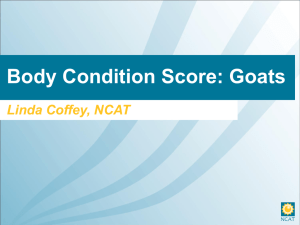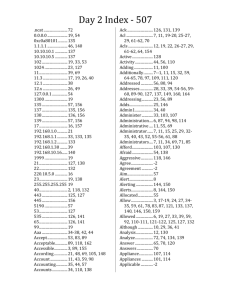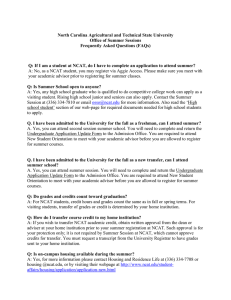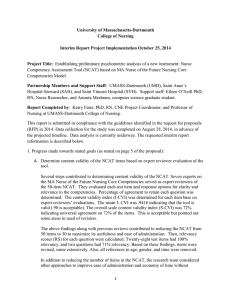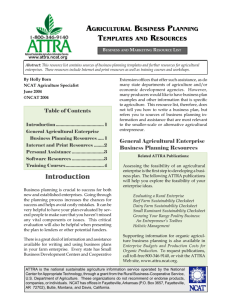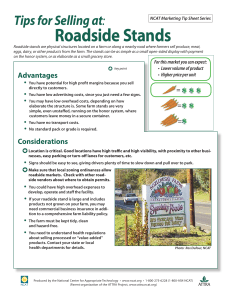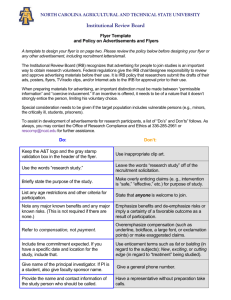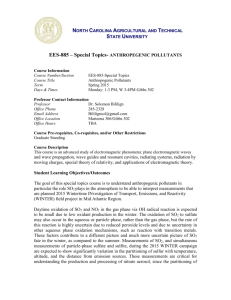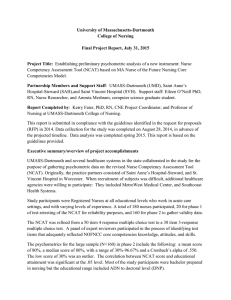Recordkeeping, Marketing and Economics
advertisement
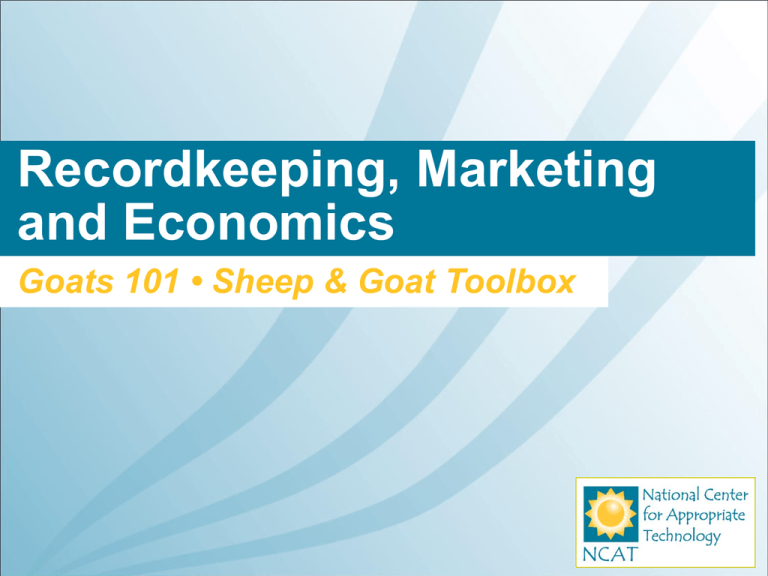
Recordkeeping, Marketing and Economics Goats 101 • Sheep & Goat Toolbox Recordkeeping • Records are important!!! • Keep records that you will use • Types of records – Breeding/kidding – Health – Economic (costs, sales) Records http://www.sheep101.info/201/Forms/BarnRecordgoats.pdf Records http://www.sheep101.info/201/Forms/Doerecord.pdf Records Records http://www.wvu.edu/~exten/infores/pubs/Record%20Books/ES06-142 %20Goat%20Guide.pdf Records http://www.famu.edu/goats/UserFiles/File/Record_Keeping.pdf Recordkeeping • Takes time • Helps to: – Identify animals to keep or cull – Identify health issues – Evaluate marketing – Track costs/income – Make tax time easier! Make or break time • Marketing is what sets your farm apart • Dependant on: – Farm and lifestyle goals – Local access and demand – Your ability/desire to create demand – Personal preference – Time you are willing to invest – Income goals Marketing • Lots of options • Learn what your customer wants • Consider the benefits and challenges of different marketing channels Marketing Options? • Methods? • Products/services? Marketing Options • Sale barn • Ethnic markets • Pooled/cooperative sale • Organic • Graded sale • Breeding stock • On-farm • Buyer’s club • Value-added products • Show stock • Farmers Market • Vegetation management • Restaurants/stores • Fiber • Milk/dairy products Setting your price • Variable • Cover cost • Build in profit Break-even Kid Price (per pound) % Kid Crop Doe cost ($/head/yr) 75% 100% 150% 200% 30 .67 .50 .33 .25 40 .89 .67 .45 .34 50 1.11 .83 .55 .42 60 1.33 1.00 .67 .50 Assumed market weight: 60 lbs. To Enhance Profitability • Keep costs low • Manage forages and animals well • Pay attention to marketing Photo courtesy of Susan Schoenian More information at: • www.sheepgoatmarketing.info • Marketing chapter in the Small Ruminant Resource Manual, and • Tips for Marketing Sheep and Goats series (Live Animal, Meat, Dairy, Fiber, Vegetation Management Services) at www.attra.ncat.org The National Center for Appropriate Technology (NCAT) is a nonprofit organization that helps people and communities. NCAT champions smallscale, sustainable and local solutions to reduce poverty, protect communities and promote natural resources. Since 1976, NCAT has weatherized houses, trained farmers, monitored energy use and demonstrated renewable technology. NCAT works on local and national projects that foster a healthy quality of life for everyone.
